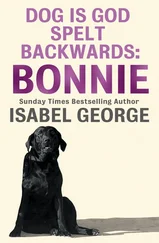‘I’m sure that you’d be interested in the work we are doing at Leyden. Shall we talk it over this evening over a good rijstafel?’ he suggested with a cautious smile.
Guntur had accepted. They had arranged to meet that evening at 19.30 at the Java Satay, on the Nassaukade, near the Leidesplein. The linguist had told him that he had a few things to do in Amsterdam and wanted to catch the 21.17 train back to Leyden. It had not occurred to Guntur to wonder why someone intending to catch a train should choose a restaurant so far from the station; now he saw how slow-thinking he had been. Soaked to the skin, he ran over the slippery cobbles through the fine rain, his chest tight with effort, his legs aching; such few passers-by as there were stood aside in some alarm to let him pass. At last he arrived on the quay and went over the bridge which led to the university. The campus lights lit up the broad open space between the modern buildings which had sprung up around the old nineteenth-century complex. Guntur went through the gate and took the path to the brick building. The door had not been tampered with. He turned the key hurriedly in the lock and deactivated the alarm. Everything seemed to be as he had left it. It was now raining heavily, and huge clouds were rolling in over the Nieuwe Diep, and water and land seemed to have merged into a single greenish haze. Guntur ran into the laboratory, pausing to take his ritual knife down from the wall; it was a kris from Bali he’d bought in an antique shop, more to play the part of a real Indonesian than for any other reason. He didn’t even know how to use it, but he felt safer with a weapon in his belt. The rain was lashing the glass of the greenhouse, making a deafening roar. There too all seemed to be in order. The campus lights cast only a faint glimmer on the grass, and the pavement outside the lab was now almost in complete darkness; the building itself was sunk in shadow. Django didn’t notice Guntur as he came in: as always when there was a heavy downpour, he was leaning up against the glass overlooking the water, gripping the grille and casting occasional nervous glances around him. Guntur took a few steps towards him; he didn’t want to frighten him, so he paused for a few moments. Just as he had noticed that the African’s little microphone was still attached to the grille, a sudden explosion shattered the glass. The chimp howled and ran for cover, but another four shots sent him tumbling down into the sand pit. Guntur ran for the door which led to the quay and saw the man from Leyden on the far bank, putting away his gun. He jumped down the embankment and ran along to the end of the quay in the lee of a wall. He didn’t know what he was going to do, but sheer blind rage drove him to pursue the false De Smet. He knew that bit of asphalt-covered earth like the back of his hand; at the end of it was a concrete jetty with moorings for the barges. The African would have to go that way to get back to the shore. Guntur crouched down and unsheathed his knife.
It was still raining heavily. The lighthouse at the mouth of the canal was flashing, and a tugboat was sounding its siren in the mist. The bogus De Smet was running among the mooring-posts, leap-frogging over the hawsers. In that downpour, he couldn’t see within an inch of his nose, but he was sure that Guntur was around there somewhere. He had put down his bag and was holding his gun at the ready. Guntur saw him approaching, climbed up to the edge of the asphalt-covered patch of ground and was about to leap on him. But the African had slipped and fallen, so he could see his attacker looming up out of the mist. Twisting this way and that, Guntur positioned himself firmly and fixed his gaze on the wall of water which now obscured the African’s silhouette. This wall of water was now approaching, taking on human form, becoming arms and legs. Guntur let fly a downward blow, but missed. Meanwhile the African had picked up his gun and pulled the trigger, but lost his balance at the crucial moment, so that the bullet ricocheted across the concrete. Guntur repositioned himself, drew back his arm and tried again: an upward blow this time, aimed to fall where it would kill. The tip of his knife sliced through the folds of the African’s sodden overcoat and bit into his flesh. The man put one hand to his stomach, staggered and fell to his knees, but, making one final effort, managed to hit Guntur on the head, using his pistol as a club. Guntur’s howl of pain was lost in the louder howling of the wind. For a moment everything went black and he seemed to lose consciousness. He felt blood from the wound pouring into his eyes. Seizing the moment, the African got to his feet and made a run for it, dragging himself along the asphalt-covered dike towards the bridge over the motorway; but Guntur was in hot pursuit, right on his heels. The African was limping, his stomach clearly causing him severe pain, his strength ebbing away. Now he was struggling back up the asphalt-covered patch of ground where he had fallen. Guntur caught up with him on the bank, under the piers of the bridge. He flung himself upon the man; holding the kris in both hands, he brought it down between the man’s shoulders; the African turned and saw it glint briefly before he felt the blow, which took his breath away. He dropped his gun and fell heavily to the ground. In one last bid for escape, he was now dragging himself along on his elbows, then started thrashing around with his knees on the algae-infested embankment, his hands towards the canal, vainly seeking assistance from the scummy mass of water that opened up before him as he watched his blood mingle with the rain in the Nieuwe Diep; then he allowed himself to slip down from the quay and sank into the water without a sound. Thoroughly dazed, his face dripping with blood and his head throbbing with pain, Guntur got to his feet and peered through the rain-pocked ripples at the body of the man from Leyden as the current carried it away.
He went back to the greenhouse in search of Django, but it was too late: the chimpanzee was lying lifeless on the blood-stained sand. Now that he was dead, he had once more become the animal that he had always been, his face that of a chimpanzee and nothing more. The chink through which Guntur had glimpsed a mind in the creature had now closed up for good: millions of years had been sucked back into the void. He shook himself: he was in danger there, he had to get away. Whoever had put the bogus De Smet on his trail would not stop there. He picked up a roll of oilskin he kept in the laboratory, bound up the wound to his head, concealing it beneath a sailor’s cap, threw the false De Smet’s hard disks and computer into a sports bag and set off in the rain towards the station. Once in the dimly-lit entrance hall he felt distinctly uneasy, and kept on peering nervously over his shoulder. The departure of the African’s train to Leyden was up on the departure board. He joined the queue at the booking-office without the faintest idea of where he was going to go. When his turn came he hesitated, then finally told the irritated ticket-man that he wanted to go to Antwerp, where he had an old friend from college days, though he hadn’t the faintest idea of his address. The train slid out into the night, grinding along at a leisurely pace as though it didn’t dare to proceed more speedily amidst the downpour which was drumming heavily against its windows. The 22.30 Thalys for Paris stopped at Rotterdam, Antwerp and Brussels; it was the one used by the art dealers who came to the Dutch auctions, who would take the fast train home after celebrating a good deal with a good meal. But that evening there was hardly anyone on board, apart from a few Japanese, buried amidst enormous suitcases, their maps of Europe spread out upon the table. Guntur cast a brief glance at their synthetic raincoats, leaned his head up against the window and fell asleep.
Читать дальше












